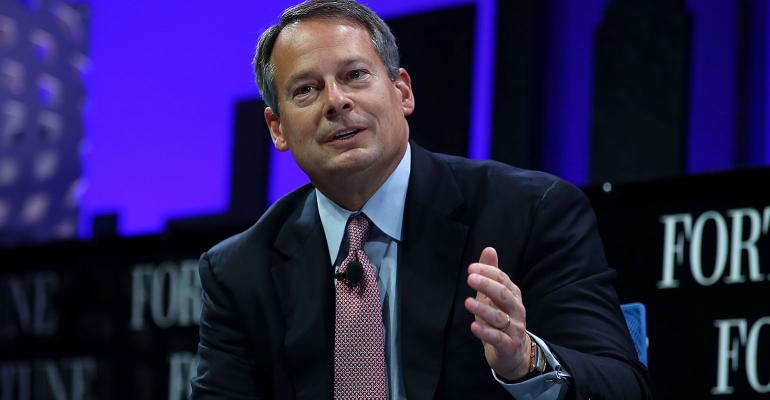When Charles Schwab’s CEO Walter Bettinger discusses fees, advisors and investors take notice. But in a recent interview with Bloomberg TV, Bettinger wasn’t talking about exchange traded funds or online trades, he was discussing financial advisors whose value proposition to clients is all about their investment abilities. “The only certainty in investing is the fees that you pay. And the more certain a person tells you they can outperform the market, the faster you should run,” he said.
It’s not just advisors who should be aware of the messages they’re sending. With the rise of passive investing and investors who are better educated and have more access to information than they did even five years ago, clients’ expectations are high for financial professionals across the board. The role of active managers, for example, is “narrower than it’s historically been,” Bettinger noted, and limited to experts in select parts of the market, such as “deep value” or managers with a specific industry focus.
As one of the larger custodians and technology providers for independent financial advisors, Schwab has an important role in the RIA ecosystem. Bettinger said “95 plus percent” of its independent registered investment advisors elect to work as fiduciaries even though it’s not a prerequisite to join the platform. He also confirmed that conversations have taken place within the company that “the business where we serve independent investment advisors” could expand to areas outside of the U.S., particularly to the U.K. as it moves “more and more towards a fiduciary-like model.”
A disruptor in the brokerage scene decades ago, Schwab is no stranger to paradigm shifts. Bettinger said he sees today’s wealth technology as pressuring “entrenched firms,” legacy financial companies, to make “more courageous decisions.” Facing the choice between protecting what they’ve built up and preparing for a future that looks different than the present, large companies are facing tough decisions, he said. “If you have the courage to disrupt yourself, you actually are in the strongest position as an entrenched company.”
Bettinger also discussed the importance of scale and the impact it has in making obligatory considerations, like cybersecurity and compliance, more efficient. “If you are subscale, it is very difficult to spread these costs over your base without it ultimately hitting the client in terms of higher fees,” he noted. At Schwab, the approach has been to scale up, while returning some of the extra efficiency back to the customer in the form of lower fees.





